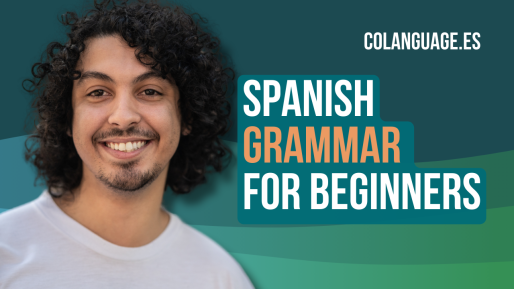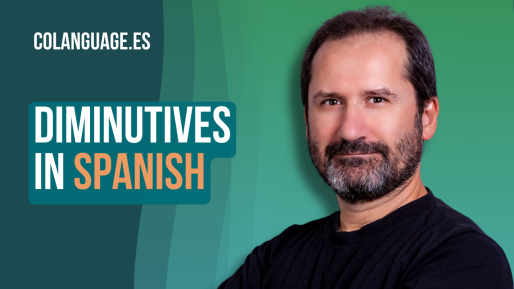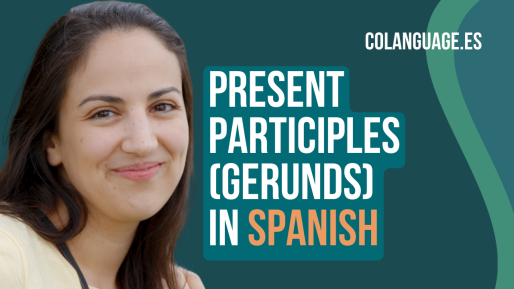If-clauses in Spanish ("Si...") Share Copied!
Spanish
Learn how to correctly use if-clauses in Spanish with this easy grammar sheet. Let's get into it!
Video
Podcast
What are "if"-clauses or conditional sentences?
“If”-clauses, also called conditional sentences, indicate possibilities, which may or may not become true.
-
Si llueve, me quedaré en casa. (If it rains, I will stay at home.)
-
Si tuviera más tiempo, viajaría por el mundo. (If I had more time, I would travel the world.)
-
Si hubieras estudiado más, habrías aprobado el examen. (If you had studied more, you would have passed the exam.)
Forming conditional tenses in Spanish
Conditional sentences are formed by two parts:
-
The first part is the condition, and includes the “if”-clause.
-
The second part is the result if the condition is met.
"Si..." in the present simple (indicative) in Spanish
This first type of “if”-clause is used when the outcome is seen as possible.
| Condition | Result | Spanish | English |
| Simple present (indicative) | Present |
Si hace calor, vamos a la playa. Si hace ... vamos |
If it is warm, we go to the beach. If it is ... we go |
|
Si quieres, te acompaño a la cena. Si quieres ... te acacompaño |
If you want, I join you for dinner. If you want ... I join |
||
| Future |
Si el tren llega tarde, perderemos la conexión. Si llega tarde ... perderemos |
If the train arrives late, we will miss the connection. If it arrives late ... we will miss |
|
|
Si el precio sube, la demanda disminuirá. Si sube ... disminuirá |
If the price goes up, the demand will decrease. If it goes up ... it will decrease |
||
| Imperative |
Si tienes sed, bebe agua. Si tienes ... bebe |
If you are thirsty, drink water. If you are ... drink |
"If"-clauses in the simple present can be combined with the present, future or imperative tenses.
Listening exercise
You can practice the use of the "if"-clauses in different tenses with this exercise.
| Spanish | English | |
|---|---|---|
| Daniel |
Si estudias todos los días, aprobarás el examen. |
If you study every day, you will pass the exam. |
| María |
Siempre estudio, pero a veces me cuesta concentrarme. |
I always study, but sometimes I struggle to concentrate. |
| Daniel |
Si te organizas mejor, puedes mejorar tu concentración. |
If you organise yourself better, you can improve your concentration. |
| María |
Tienes razón, intentaré tener un horario más estructurado. |
You are right, I will try to have a more structured schedule. |
| Daniel |
Si lo haces, verás resultados positivos rápidamente. |
If you do that, you will see positive results quickly. |
"Si..." in the imperfect past (subjunctive) in Spanish
The end result of this second type of "if"-clause is seen as impossible or unlikely. The following table will show you example sentences in the simple conditional.
| Condition | Result | Spanish | English |
| Imperfect past (subjunctive) | Conditional (simple) |
Si tuviera más dinero, compraría una casa. |
If I had more money, I would buy a house. |
|
Si viviéramos en la playa, iríamos a nadar todos los días. |
If we lived at the beach, we would go swimming every day. |
||
|
Si supieran cocinar, no comerían fuera tan a menudo. |
If they knew how to cook, they wouldn't eat out so often. |
||
|
Si él fuera más organizado, no perdería tanto tiempo. |
If he was more organised, he wouldn't waste so much time. |
"If"-clauses in the imperfect past tense are followed by the simple conditional tense.
Listening exercise
Let's put into practise the "if"-clause in the imperfect past (subjunctive).
| Spanish | English | |
|---|---|---|
| Daniel |
Si no lloviera tanto, podríamos disfrutar más de la naturaleza. |
If it didn't rain so much, we could enjoy nature more. |
| Maria |
Exacto, si el clima fuera más predecible, podríamos planificar más actividades al aire libre. |
Exactly, if the weather was more predictable, we could plan more outdoor activities. |
| Daniel |
Y si las temperaturas fueran más altas, podríamos hacer caminatas más largas. |
And if the temperatures were higher, we could go on longer hikes. |
| María |
¡Es verdad! Si el clima fuera más cooperativo, sería mucho más placentero. |
It's true! If the weather were more cooperative, it would be much more pleasant. |
"If"-clauses in Spanish: past perfect (subjunctive)
This third form of if clauses, refer back to unreal results in the past.
| Condition | Result | Spanish | English |
| Past perfect (subjunctive) | Conditional (compound) |
Si hubiera estudiado medicina, habría sido un buen doctor. |
If I had studied medicine, I would have been a good doctor. |
|
Si hubiéramos llegado temprano, no habríamos perdido el tren. |
If we had arrived early, we wouldn't have missed the train. |
||
| Past perfect subjunctive |
Si ella hubiera practicado más, hubiera ganado la competición. |
If she had practised more, she would have won the competition. |
|
|
Si hubieras hecho más ejercicio, te hubieras sentido mejor físicamente. |
If you had exercised more, you would have felt better physically. |
"If"-clauses in the past perfect can be combined with the compound conditional or past perfect subjunctive.
Listening exercise
You can practise how to form "if"-clauses in the past perfect (subjunctive) with this exercise.
| Spanish | English | |
|---|---|---|
| Daniel |
¿Qué habrías hecho si hubieras ganado la lotería? |
What would you have done if you had won the lottery? |
| María |
Si hubiera ganado la lotería, habría viajado por todo el mundo. |
If I had won the lottery, I would have travelled around the world. |
| Daniel |
¿Y si hubieras tenido la oportunidad de residir en otro país, cuál habrías elegido? |
If you had had the opportunity to reside in another country, which one would you have chosen? |
| María |
Si hubiera tenido esa oportunidad, habría elegido vivir en España. |
If I had had the opportunity, I would have chosen to live in Spain. |
Key takeaways
Here is a quick summary of this lesson.
- Conditional sentences are formed by two parts. The first part is the condition, and includes the “if”-clause. The second part is the result if the condition is met.
- There are three main types in Spanish, each showing how likely or certain something is.
- “If”-clauses, also called conditional sentences, indicate possibilities, which may or may not become true.
Subscribe to our social media channels to get free daily exercises!



